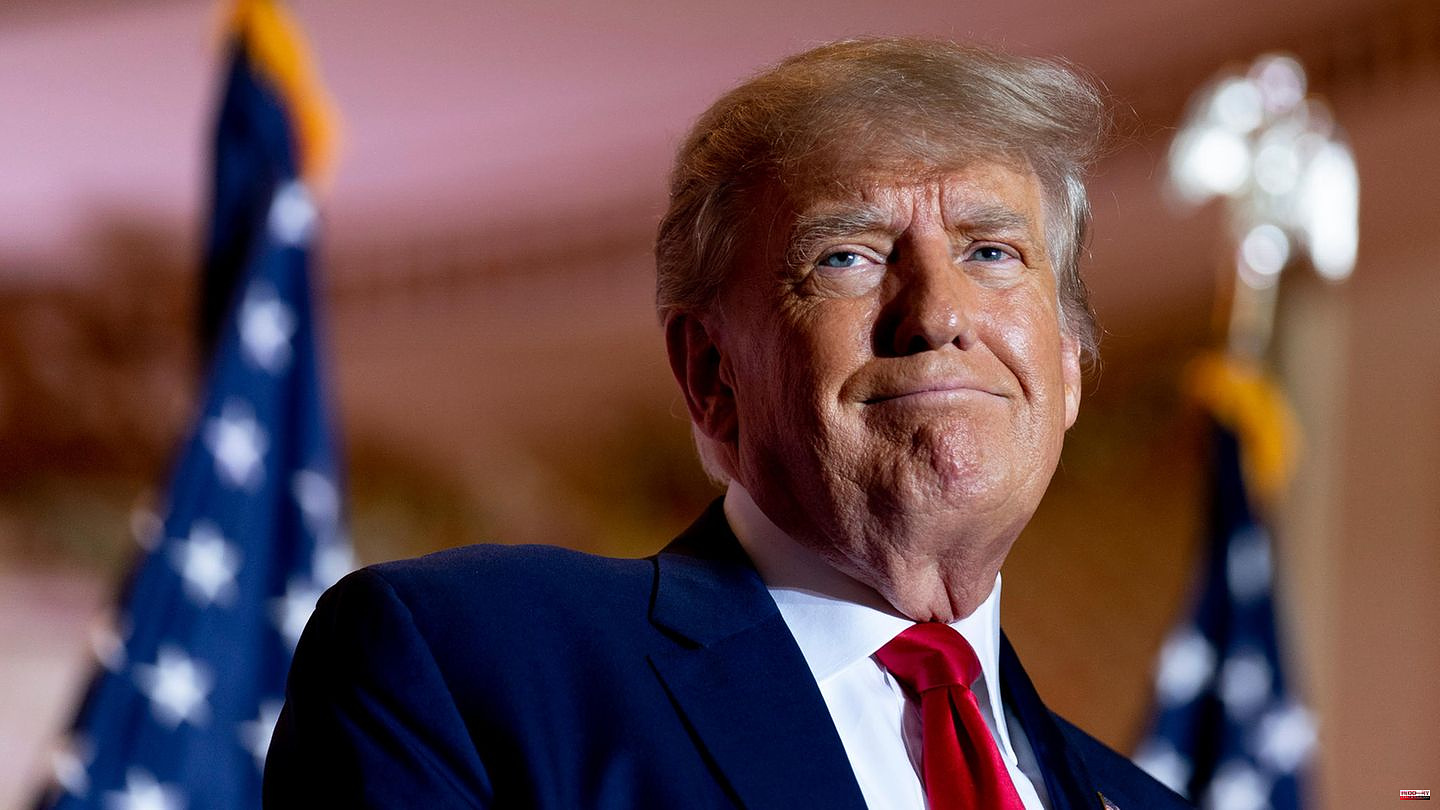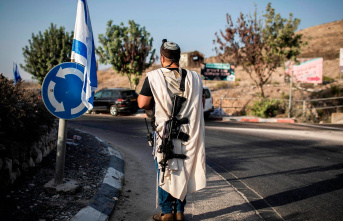Does Donald Trump's return to Twitter mean a comeback of "covfefe"? Possibly the enigmatic neologism that the then US President accidentally created and deleted in 2017 most impressively illustrates the importance that was once attached to his permanently agitated short messages, no matter how meaningless they may have been.
At the time, the random-looking word monster occupied editorial offices worldwide who tried to interpret the letter salad. What could the president have meant after four months in office? The Cyptic tweet was discussed in the White House press briefing, until it was deleted "six hours and three minutes of internet chaos" prevailed, as the "Atlantic" was to state years later. To this day there is no reliable answer to the question of what "covfefe" could have meant, at least the specially created Wikipedia article does not.
Of course, there have been far more controversial tweets from the former president, at times announcing military strikes or resigning cabinet members, and with far greater repercussions. Eventually, he was banned from short messaging after showing goodwill for his rampaging supporters who violently stormed the Capitol in Washington in January 2021. The "risk of further incitement to violence" is too great, according to Twitter.
Now @realDonaldTrump is back, at least in theory. The ex-president's profile has been activated again since Sunday, but (still) no more than a time capsule: Trump has not touched the keys since the controversial rehabilitation by the equally controversial Twitter boss Elon Musk, his last visible tweet is dated January 8, 2021. In it he announced that Joe Biden's inauguration would take place without his presence.
Doesn't he want to go back? And if so, what is he waiting for? Again, a wordy debate ensues about the scope of the maximum of 280 slim signs from Trump, who is no longer President of the United States but wants to become one again. And again the collective anxiety is great: Will the countless lies and hate comments return in compact bites with Trump?
Some call it so, others so. Trump says: "I see no reason for it". He initially rejected a comeback on Twitter on Sunday without completely ruling it out. He wants to remain loyal to Truth Social, which he believes already has better user retention and is doing "phenomenally well."
Trump created the alternative network specifically to make up for the loss of his presence on Twitter, Facebook, and other channels — and to spread his own truth. "We live in a world where the Taliban have a huge presence on Twitter, but your favorite American President has been silenced," Trump said at the time.
Trump has 4.6 million followers on the platform, on which his fans, conservatives and right-wingers in particular have been shooting freely ever since. In September, the website recorded around 1.7 million visitors from the USA, as estimated by the Internet analysis company Similarweb, and is therefore not suitable for Trump as a powerful multiplier of his views. On Twitter, on the other hand, around 89 million accounts followed what the former president was up to. Now, with the lockdown lifted, it's only slightly less at 87.3 million.
It cannot therefore be ruled out that, with a view to his presidential candidacy, Trump will again reach for the megaphone that was once taken from his hand in order to disseminate his views to the masses. If he shares the content he's trumpeting on Truth Social there, he could turn Twitter into a "hotbed of hate, harassment and hate speech," said Joan Donovan, who researches misinformation at Harvard's Joan Shorenstein Center in Cambridge, among other things.
A return to Twitter would probably also be accompanied by a boost for his personal brand, she told the New York Times, where he could reach a much broader and more influential audience. "The difference between Twitter and Truth Social isn't just a matter of scale. It's a matter of influence — global leaders, journalists, celebrities, cultural workers, these are the people who are on Twitter," Donovan said. Even if Trump simply tweeted links to his posts on Truth Social, it would strengthen his brand.
However, the hands of the former president are apparently tied, at least to a certain extent. Trump has a financial interest in Truth Social and, according to a decision by the US Securities and Exchange Commission, is contractually obligated to make his posts exclusively on Truth Social for six hours. This was reported by the "New York Times". However, he can immediately post on any website if the news relates to political messages, calls for donations or initiatives to vote. How narrow or broad the definition can be interpreted is unclear. Truth Social did not respond to a statement to the newspaper.
The renowned journalist Kara Swisher, who is considered a proven expert on social networks and the tech industry, says: Trump's return to Twitter makes no difference. His "truths" are already being shared on Twitter without his doing anything. Nevertheless, he probably won't be able to resist getting involved again himself, she said in an interview with CBS. "I don't think it makes a difference. Besides, he's the former president, so it won't take that."
Brian L. Ott is clearly more pessimistic. In a guest article for the "New York Times", the communication scientist from Missouri State University and author warns to prepare for the worst.
"As someone who has studied Mr. Trump's Twitter use prior to his election to the presidency, I believe his return will reflect the increased dissemination of misinformation and disinformation, demeaning and dehumanizing discourse, hate speech, and the erosion of democratic norms and institutions would mean," writes Ott. The "probability of political violence" could also increase.
The scientist writes of an unholy alliance that Trump and Twitter form and make it so dangerous: The strict limitation to 280 characters practically does not allow any thoughtful or sustained discussions on serious topics, so it is only suitable for "broadly and quickly communicating simple messages ". A prime discipline of Trump, whose tweets were provided with all sorts of warnings because their hyperfocused content was misleading or simply wrong.
"Put simply," Ott writes, "when you're surrounded by dry kindling, add an accelerant, and strike a match, a conflagration is the predictable event."
Quellen: "New York Times", "Axios", "Washington Post", ABC News, "The Atlantic", CNN












